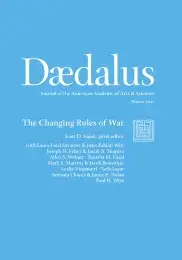The Distant Promise of a Negotiated Justice
A basic dilemma for political transitions and peace talks, whether to hold perpetrators of mass atrocities accountable or to negotiate a deal, has once again become the source of intense political controversy. Originally seen as containing a pathbreaking and innovative solution to this problem, a peace deal designed to bring an end to the war between the government of Colombia and the FARC was instrumentalized by former President Uribe to mobilize popular support and was struck down when it was put to the public for a vote. Elsewhere, political realities have impinged on efforts to hold trials, provoking a backlash by powerful individuals determined to spoil the peace rather than sacrifice their personal freedom. But when international criminal tribunals fail to prosecute powerful spoilers, they have been condemned for their hypocrisy or charged with being selective in their pursuit of justice. One measure to address the basic accountability dilemma would be to accept transitional justice compromises that hold a reasonable prospect of delivering peace and that have a strong base of support among those individuals and communities most affected by political violence. Transitional justice strategies should be guided by a do-no-harm principle.
Fourteen years ago, in the pages of this journal, Jack Goldsmith and Stephen Krasner wrote about the limits of an idealism that would disassociate the search for justice from sovereignty, national security, and power politics.1 In that same year, Jack Snyder and I wrote that holding war crime trials in states with powerful spoilers and weak institutions risked provoking a backlash.2 These warnings, grounded in a logic that stressed the consequences of political action, built on the work of Samuel Huntington, who, in his book Third Wave, identified the potential for a backlash if war crimes trials were held in countries where the military retained significant power.3
Despite these cautionary notes, the effort to build and consolidate institutions around a rules-based logic designed to secure the prospect of criminal accountability for international crimes has forged ahead . . .
To read the full essay, access the PDF.
